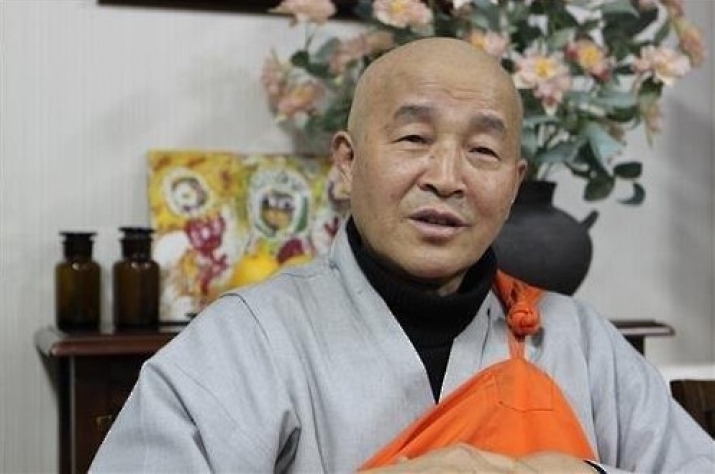NEWS
Korean Monk Hopes to Spread Buddhist Teachings in Cuba
 Ven. Jingwan of the Jogye Order of Korean Buddhism. From yonhapnews.co.kr
Ven. Jingwan of the Jogye Order of Korean Buddhism. From yonhapnews.co.krVenerable Jingwan, a Korean monk of the Jogye Order, expressed optimism recently regarding his hope of spreading the teachings of Buddhism in the Cuban capital, Havana. His remarks followed a weeklong visit during which the monk met with state administrators and officials of private organizations to share his vision for Korean Buddhism in Cuba.
“I thought Cuba was a monolithic Catholic nation, but I was pleasantly surprised to see many temples of diverse religious origins,” Ven. Jingwan, also head of Korea’s Mujinjang Buddhist Culture Research Institute, said in an interview last week, in which he praised the country for its religious freedom. He observed that there were currently very few Buddhists in Cuba, despite the presence of Nichiren Buddhism, a Japanese school of Mahayana Buddhism. (Yonhap News Agency)
Cuba is a majority Christian country, with Buddhism practiced by less than 0.1 per cent of its population of 11.3 million, according to 2010 data from the Washington, DC-based Pew Research Center.
“Although I didn’t have the chance to fully dedicate myself to delivering the teachings of Korean Buddhism, I felt certain that the city could be a milestone of fostering Korean Buddhism in Latin America,” the monk said, adding that he hoped Buddhist communities in China, Japan, and Korea could join hands in sharing the teachings of Buddhism. (Yonhap News Agency)
Ven. Jingwan also expressed his hope of seeing a Korean Buddhist temple established in Cuba. “Cuba is a country of islands and archipelagos with easy access to the [Caribbean] sea. The country is warm in winter and will make an excellent spot to build a temple alongside the beach to welcome the Buddhist monks to contemplate,” he added. (Yonhap News Agency)
The monk noted that he had observed a strong emphasis on patriotic values in religion in Cuba, which he believed was compatible with the historical roots of Korean Buddhism, in which monks had play an active role in times of national crisis based on a belief in protecting the nation.
Yonhap News Agency reported that the visit was organized by a civic group that supports cultural ties between Cuba and South Korea. The report added that the organization hoped to extend invitations to visit Korea to Alexander Castro, the son of Cuban revolutionary and former president Fidel Castro, and Aleida Guevara, the daughter of Argentinian revolutionary Ernesto “Che” Guevara, who played a major role in the Cuban Revolution.
Ven. Jingwan said he would like to invite Alexander Castro, a photographer whose work is slated for exhibition in Korea in July, to stay at Jingwan Temple in Seoul to experience the rich culture of Korean Buddhism.
The Jogye Order of Korean Buddhism is a school of Seon (Zen) Buddhism and South Korea’s largest Buddhist tradition, with roots that have been traced back 1,200 years to the Unified Silla (also known as the Later Silla) kingdom (668–935). Buddhism was adopted as the official state religion during the Three Kingdoms period (57 BCE–668 CE). The Jogye school as a distinct entity emerged in the late 11th century when the monk Bojo Jinul, credited as the school’s founder, sought to combine the practices of Seon Buddhism with the theological underpinnings of sutra-based Buddhist schools, including Korean Pure Land Buddhism.
See more
(Yonhap Interview) Venerable Jingwan dreams of Korean Buddhism flourishing in Cuba (Yonhap News Agency)
Jogye Order of Korean Buddhism














